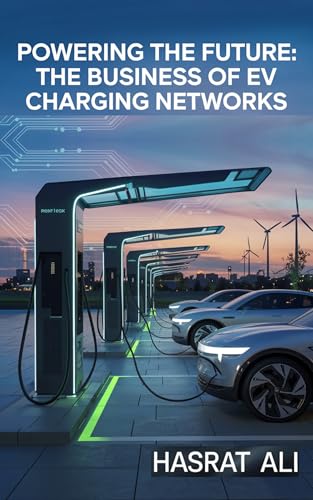Nvidia’s AI technology is poised to become a key driver of tomorrow’s EVs, powering autonomous driving, safety features, and advanced vehicle design. Its DRIVE platforms are already used by over 20 automakers, helping improve efficiency and sustainability. Nvidia’s AI also optimizes charging infrastructure and supply chains, making EVs safer and more accessible. If you keep exploring, you’ll discover how this AI stock could shape the future of electric vehicles in ways you hadn’t imagined.
Key Takeaways
- Nvidia powers essential AI platforms like DRIVE AGX and DRIVE Orin, critical for autonomous and safety features in EVs.
- AI-driven manufacturing optimizes battery performance, reduces costs, and accelerates innovative EV design.
- Nvidia’s AI technology enhances vehicle safety with advanced driver assistance and real-time environment analysis.
- Their AI solutions streamline supply chains and improve EV component efficiency, boosting automakers’ competitiveness.
- AI infrastructure for charging stations and ecosystem management positions Nvidia as a key enabler of next-gen EV experiences.

Artificial intelligence is transforming the electric vehicle (EV) industry, creating new opportunities for investors and innovators alike. Nvidia stands out as a key player in this shift, powering advanced technologies like DRIVE AGX and DRIVE Orin processors used by over 20 automakers. These platforms enable semi-autonomous and safety features that are becoming standard in modern EVs. The market for autonomous systems is projected to reach $1 trillion, highlighting the vast potential for AI-driven growth. Since EVs are inherently software-focused, they’re especially suited for AI integration, making companies that develop these technologies central to the industry’s future.
In manufacturing, AI revolutionizes how companies like Tesla and Rivian produce vehicles. Automation streamlines production lines, cuts costs, and enhances precision. AI also optimizes battery performance, extending range and lifespan, which directly appeals to consumers seeking efficiency and sustainability. Predictive analytics reduce factory downtime by forecasting maintenance needs, maintaining smooth operations. Moreover, AI plays an essential role in designing new EV models and developing innovative technologies, pushing the boundaries of vehicle efficiency and safety. This adoption of AI fosters more sustainable and efficient manufacturing processes, aligning with the industry’s eco-friendly goals.
AI is equally critical in enhancing EV safety and enabling autonomous driving. Advanced driver assistance systems, powered by AI, deliver safer driving experiences. As developers work toward fully autonomous vehicles, AI relies on high-quality data annotation and smart sensors to interpret real-time environment data, improving vehicle responses. These systems not only boost safety but also help manufacturers meet regulatory standards for autonomous EVs by analyzing vast amounts of data for compliance. Furthermore, the integration of AI into vehicle systems is accelerating the development of fully autonomous EVs, making them more accessible and reliable for everyday use. Additionally, the ongoing improvements in AI safety measures are crucial to addressing trust and security concerns in autonomous vehicle deployment.
Innovation driven by AI extends beyond manufacturing and safety. It influences vehicle design, making EVs more efficient and sustainable. Battery technology benefits from AI algorithms that improve longevity and energy management. AI also optimizes motor performance and streamlines supply chains, reducing costs and speeding up delivery times. Companies like Tesla, Volkswagen, Rivian, and GM leverage AI in various ways, from autonomous driving to manufacturing efficiency, positioning themselves at the forefront of EV evolution.
AI infrastructure for charging stations, such as SECO’s Edge AI, further enhances the EV ecosystem. AI manages charging station operations, predicts maintenance, and provides real-time services, creating seamless experiences for drivers. All these advances suggest that AI stocks like Nvidia could become the hidden engines powering the next generation of electric vehicles.

NVIDIA Quadro RTX 6000
CUDA Cores: 4608 / NVIDIA Tensor Cores: 576 / NVIDIA RT Cores: 72
As an affiliate, we earn on qualifying purchases.
As an affiliate, we earn on qualifying purchases.
Frequently Asked Questions
How Does AI Stock Performance Correlate With EV Market Growth?
You’ll find that AI stock performance closely correlates with EV market growth because both sectors thrive on shared innovations like autonomous driving and robotics. When EV sales accelerate, demand for AI chips and technologies increases, boosting AI stock values. Conversely, regulatory and supply chain issues can impact both markets simultaneously, creating synchronized volatility. By monitoring real-time trading patterns and market signals, you can better understand how these sectors influence each other’s performance.
What Risks Are Associated With Investing in AI Stocks for EV Innovation?
Investing in AI stocks for EV innovation is like steering a winding river, where hidden rocks may cause sudden jolts. You face risks like tightening data privacy laws, regulatory uncertainties, and supply chain hiccups that can slow progress. Competition is fierce, and rapid tech changes could render your investments outdated quickly. Plus, high volatility and valuation swings mean you must stay alert to avoid unexpected rapids, making cautious optimism essential.
Are There Regulatory Hurdles Impacting AI Companies in the EV Sector?
Regulatory hurdles can substantially impact AI companies in the EV sector. You might face delays due to environmental reviews under NEPA, Clean Water, and Clean Air Acts, which agencies are working to streamline. Additionally, new safety and compliance laws at federal and state levels, like California’s TFAIA, could increase operational costs and complexity. Staying ahead of evolving regulations is essential to guarantee your projects meet requirements and avoid costly setbacks.
How Soon Could Ai-Driven Technologies Revolutionize Electric Vehicles?
You could see AI-driven technologies revolutionize electric vehicles within the next 5 to 10 years. Currently, AI improves battery safety, increases driving range by up to 20%, and reduces charging times markedly. As automakers adopt AI for autonomous driving, predictive maintenance, and personalized user experiences, these innovations will accelerate EV adoption, making your future commute safer, smarter, and more efficient. The pace of advancements suggests a transformative impact is just around the corner.
Which Other Industries Could AI Stocks Potentially Influence Beyond EVS?
AI stocks could substantially influence healthcare, manufacturing, logistics, consumer services, and agriculture. You’ll see AI transforming diagnostics, automating customer support, optimizing supply chains, and enhancing productivity across these sectors. With AI driving cost efficiencies, revenue growth, and skill development, you’ll notice a ripple effect in employment and industry innovation. Investing in AI stocks means tapping into a broad wave of technological change that’s reshaping many aspects of everyday life and business.

ECOVACS DEEBOT X9 PRO Omni Robot Vacuum and Mop, 16,600Pa Suction, OZMO Roller Self-Washing Mop, ZeroTangle 3.0, Triple Lift System, AI Navigation, Hands-Free Station
BLAST Large-Airflow Suction – Deeper Carpet Cleaning: BLAST technology combines 16,600Pa suction with 38% higher airflow to pull…
As an affiliate, we earn on qualifying purchases.
As an affiliate, we earn on qualifying purchases.
Conclusion
So, as you consider this AI stock, remember that it could be the hidden engine powering tomorrow’s EVs. Don’t put all your eggs in one basket, but staying informed might give you an edge. The potential here is huge, and the stakes are high. Keep your eyes open and don’t miss the boat—sometimes the real treasure lies where others aren’t looking yet. This could be one of those once-in-a-lifetime opportunities.

Electric Vehicle Battery Management & Optimization: Maximizing Performance, Longevity, and Safety in Modern EVs
As an affiliate, we earn on qualifying purchases.
As an affiliate, we earn on qualifying purchases.

Powering the Future The Business of EV Charging Networks: Lets Dive Into Profit Through Smart Tech, Partnerships, and Green Policies From Government Grants to Ad Revenue Monetizing the EV Ecosystem
As an affiliate, we earn on qualifying purchases.
As an affiliate, we earn on qualifying purchases.










